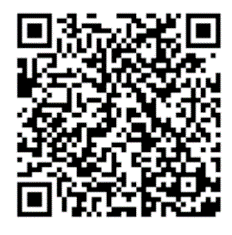T1D Clinical Trial Highlight : The TOPPLE Study at the Benaroya Research Institute

Did you know…. that 80% of clinical trials are delayed or terminated because of slow or low patient enrollment? Without clinical trials, scientists cannot verify new discoveries and pharmaceutical companies and other sponsors have less incentive to support advancing research.
Thankfully, you can help! Each month, we will highlight a clinical trial that is recruiting in our chapter or share information about the research institutions available to us in the Pacific Northwest. We believe that, as you learn about ongoing research, you will be heartened by the progress being made towards improved treatment and cures for T1D. We also hope that those of you living with T1D will be empowered to participate in one or more trials yourself.
This month, we would like to highlight the TOPPLE Study, a trial being run at the Benaroya Research Institute (BRI) in Seattle.
TOPPLE STUDY
Study Name: TOPPLE Study
Principal Investigator: Carla Greenbaum, MD
Phone: 1-800-888-4187
Email: Diabetes@BenaroyaResearch.org
WHAT IS THE TOPPLE STUDY?
This is a TrialNet study testing the safety and dosing of a new plasmid therapy in adults ages 18 – 45 who have been diagnosed with type 1 diabetes within the past four years. A plasmid is a circular piece of DNA that can deliver therapy into cells where it can communicate with the immune system. The goal is to help “re-educate” the immune system to stop destroying insulin-producing cells in the pancreas which leads to type 1 diabetes.
While plasmids are small circular pieces of DNA, they do not change your DNA. They are currently being studied in many clinical trials for other conditions.
Study Lead Investigator Robin Goland, M.D., Columbia University, New York, explains, “There are some promising new areas of study directed at trying to delay, prevent, and eventually cure T1D. Using plasmids to deliver antigen therapy directly to cells to impact this immune system is an exciting new area that can potentially be moved toward prevention.”
Earlier studies in the lab show this treatment might retrain the immune system to stop attacking insulin-producing beta cells. The TOPPLE study is a phase 1 study because this is the first time this particular plasmid is being tested in people.
As with any medical intervention, there are risks and benefits to participating in this study. Before you decide to participate, a member of BRI’s study team will explain all potential risks and benefits and answer any questions you may have.
WHAT WILL STUDY PARTICIPANTS BE ASKED TO DO?
All study visits take place at Benaroya Research Institute’s clinical research center in Seattle. Participants receive a stipend for study visits, parking is free and travel expenses are covered for those living outside the Seattle area.
A benefit of participating in a new-onset study is the personalized coaching in T1D management participants receive from the study team.
The study has two phases: treatment and follow-up. In the treatment phase, participants will visit BRI’s clinical research center weekly for 12 weeks. In the follow-up phase, participants will have a study visit at months 3, 4, 6 and 12.
Says Dr. Goland, “An important point of any phase 1 study is to help us understand the safety of the therapy. In this study, we also aim to learn about how the therapy affects the immune system. Armed with this information, we plan to move forward with a larger study to see if this therapy can delay or stop T1D before clinical diagnosis. That’s how great discoveries are made.”
HOW CAN I PARTICIPATE OR FIND OUT MORE?
To learn more about this study or find out if you’re eligible, please contact BRI at 800-888-4187 or email Diabetes@BenaroyaResearch.org or scan this QR code:
